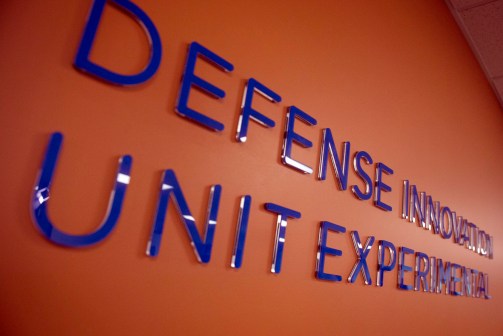Tech workers don’t hate the military that much — most don’t even really care

Technologists working in artificial intelligence may be more inclined to contract with the military than previously thought.
A new study from Georgetown’s Center for Security and Emerging Technology finds that a majority of AI workers are either inclined to work on Department of Defense projects or are neutral to it.
A plurality of surveyed technologists — 39% — reported being “neutral” on working with the military, followed closely by 38% who perceive it positively. Just 24% see working with the military as a negative, the survey showed.
Georgetown’s CSET sent a survey to several thousand people in the AI industry, from data scientists to programmers, to get a pulse on how exactly they felt about military work. The results still leave many questions unanswered, mostly due to the survey’s low response rate. But the overall picture challenges the narrative of a rift between Silicon Valley and the Pentagon that’s been driven by a vocal minority opposed to work like DOD’s Project Maven.
While “there is still a pretty significant chunk of [the tech] industry that feel pretty strong about not working with DOD,” the report’s lead author Catherine Aiken told FedScoop in an interview, it is “not enough to merit the narrative.”
For those interested in working with the military, the most common reason cited was the intrigue of the uniquely challenging problems the DOD undertakes and access to specialized resources, according to the report. That intrigue is less tied to patriotism or a drive to advance national security missions, although the report found those are motivating factors for some.
The data does not ferret out whether those who work in AI with the decision-making power to enter into DOD contracts had strong opinions either way. Instead, the report provides an overview of the general opinions of those who work in AI.
The data did find some link between technologists’ understanding of the military and their likelihood to have a positive outlook on working with the military. There is not a causal link, but it is significant, Aiken said.
“Those with some knowledge of DOD were more willing,” she said.
Another significant factor in a surveyed worker’s willingness to work with the military is the nature of the project. Not surprisingly, humanitarian and disaster relief projects, like wildfire-monitoring, are most popular. Projects geared towards DOD operations and “battlefield enhancement,” as the report puts it, got the most skepticism from those surveyed.
“Professionals were markedly more interested in doing humanitarian work,” she said.
Aiken said that the most surprising parts of the study’s results are how and why those in the AI workforce are willing to work for the military. Having knowledge of DOD operations, what motivates AI workers and what type of projects they are most interested in could help the military craft its outreach to recruit companies and its employees to contract with the government, she said.




